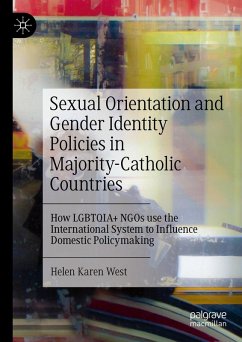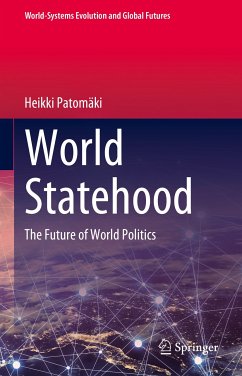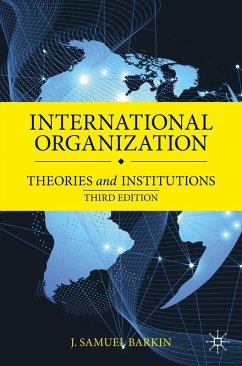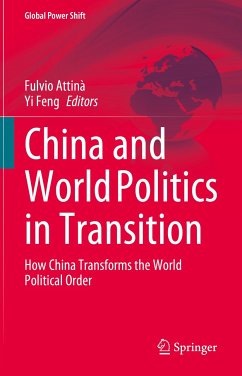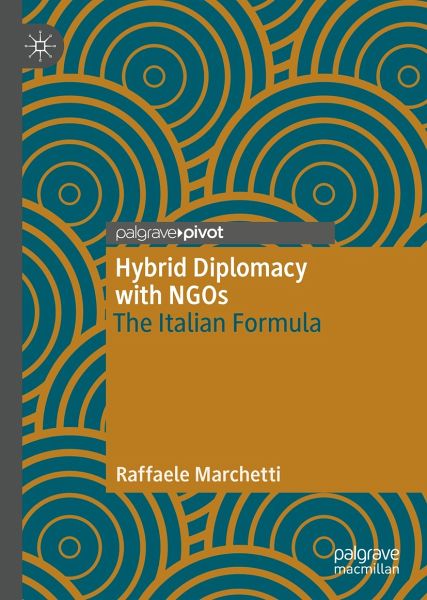
Hybrid Diplomacy with NGOs (eBook, PDF)
The Italian Formula
Versandkostenfrei!
Sofort per Download lieferbar
48,95 €
inkl. MwSt.
Weitere Ausgaben:

PAYBACK Punkte
24 °P sammeln!
This book explores a new way of doing diplomacy through the engagement with non-governmental organizations, here referred to as hybrid diplomacy. Today's global politics is played out most successfully by the combined actions of different actors. A specific type of partnership is that between governments (namely Ministries of Foreign Affairs) and civil society organizations. While not the only type of global partnership at work, this is particularly effective in advancing new issues and promoting the norm changes that have been discussed at length in international relations and sociological li...
This book explores a new way of doing diplomacy through the engagement with non-governmental organizations, here referred to as hybrid diplomacy. Today's global politics is played out most successfully by the combined actions of different actors. A specific type of partnership is that between governments (namely Ministries of Foreign Affairs) and civil society organizations. While not the only type of global partnership at work, this is particularly effective in advancing new issues and promoting the norm changes that have been discussed at length in international relations and sociological literature.
The author has chosen Italy as a case study because of the country's prolonged deployment of such policy. Being a middle power, with a strong non-profit sector, and hosting the central node of catholic global network, Italy is well positioned to take advantage of this new diplomatic mode. Through presenting a new reading of the Italian contribution to international affairs, this book contributes to broadening the scholarship in foreign policy analysis and transnational activism.
The author has chosen Italy as a case study because of the country's prolonged deployment of such policy. Being a middle power, with a strong non-profit sector, and hosting the central node of catholic global network, Italy is well positioned to take advantage of this new diplomatic mode. Through presenting a new reading of the Italian contribution to international affairs, this book contributes to broadening the scholarship in foreign policy analysis and transnational activism.
Dieser Download kann aus rechtlichen Gründen nur mit Rechnungsadresse in A, B, BG, CY, CZ, D, DK, EW, E, FIN, F, GR, HR, H, IRL, I, LT, L, LR, M, NL, PL, P, R, S, SLO, SK ausgeliefert werden.






